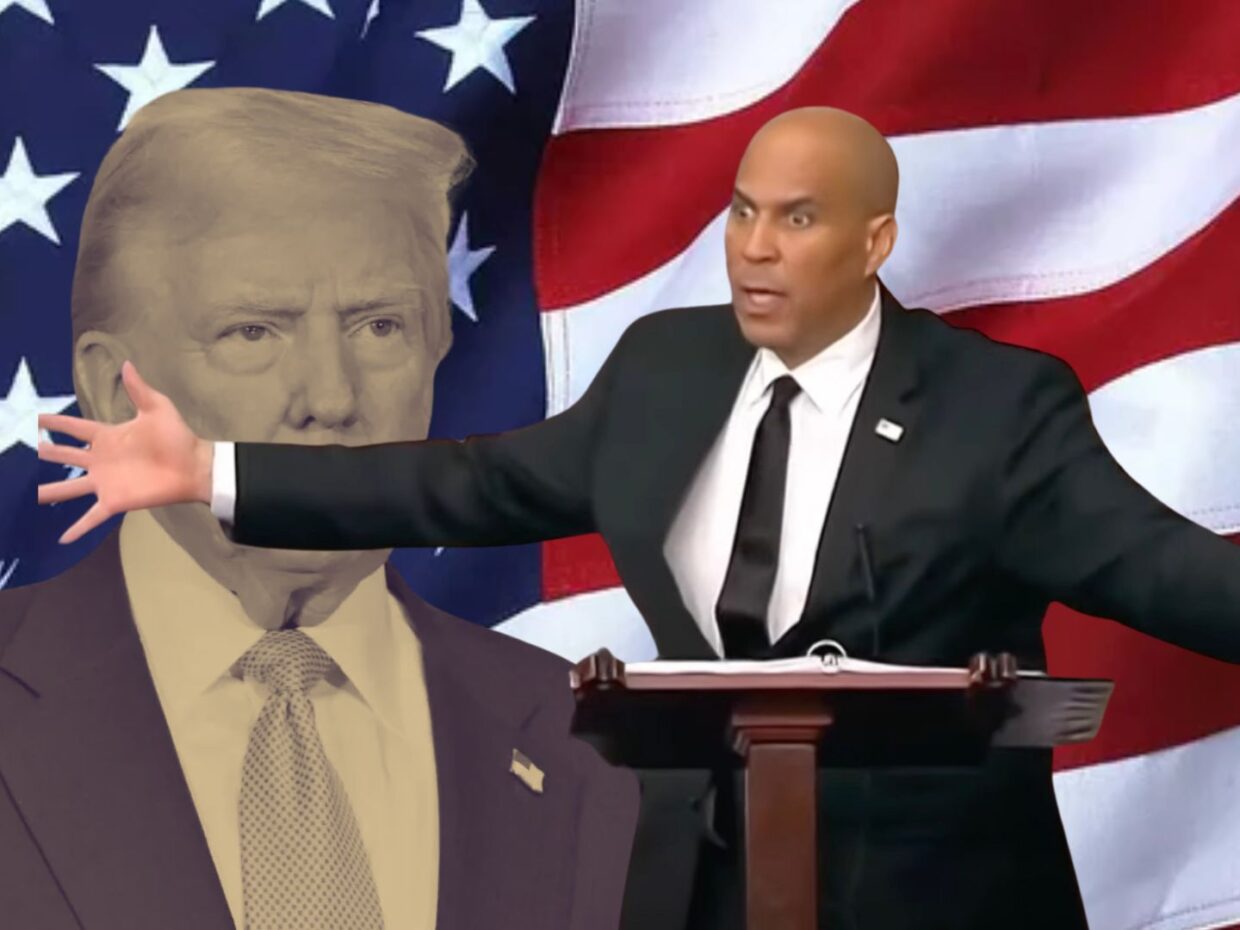Georgetown University Professor Dr. Nola Haynes Was There As Sen. Cory Booker Made History. She Discusses How His Landmark Speech Has Already Changed Politics. And What Was Accomplished.
After standing on the Senate floor for 25 straight hours, Senator Cory Booker did what most of us couldn’t even imagine—he kept going. After he talked to his peers and the world, he did some media interviews, fully engaged, still radiating the urgency he brought to the chamber. And then he returned to his office in the Hart Senate Building, where we were waiting. It was his staff, his family, and a small group of supporters.
And let me tell you: this man still had time and energy to connect. To talk. To listen. He was kind. He was generous. And something in him had clearly shifted. You could feel the transformation. That 25-hour stand wasn’t just a political act. It was personal. It was spiritual. It changed him. He had walked through fire and come out tempered, clearer, and more grounded.
So what was actually accomplished?
First—energy. It was a shock to the system, the jolt Democrats needed. It was inspiration, motivation, and a call to arms. And it didn’t happen in isolation. Booker’s effort coincided with important victories in places like Wisconsin and Louisiana, and a powerful moment in Congress when women lawmakers stood together to defeat a harmful bill that would’ve denied proxy voting to people recovering from childbirth. There was momentum building. And then came Cory Booker, standing tall in the tradition of Civil Rights giants.
His 25-hour stand was also a tribute. In his speech, Booker invoked the name of the late Congressman John Lewis, who taught us all the value of making “good trouble.” That’s exactly what Booker did. He took a moral stand. He did not rally against a specific bill or a Senate record, but rallied against an entire culture of complacency. He held up a mirror to America and essentially said: This is what’s at stake. If we don’t do better, this great experiment called democracy will fail.
Some critics called it performative. But if this is the kind of “performance” Democrats are bringing, then I say let’s go.
I’d much rather see this than Elon Musk charging a stage in a cheese hat or Kid Rock in the White House wearing some foolish costume.
Booker’s stand wasn’t about theatrics. It was about substance. It gave Democrats and all Americans something to hold onto. A vision. A spark. A reminder that leadership is supposed to look like this: passionate, principled, and people-centered.
And that’s not all. Beyond the chamber, Cory Booker is spearheading a quiet revolution in how politicians communicate. He’s leading a new program in the Senate focused on elevating new voices in media. These are digital-first creators who are rooted in their communities and speak directly to real people, not just through traditional outlets.
I’m part of that first cohort, and let me say this clearly: Cory Booker gets it. He understands that media is no longer just about legacy networks. It’s about authenticity and connection. It’s about building relationships and letting trusted messengers carry the message forward.
Will he run in 2028? I don’t know. Maybe. Maybe not.
But I do know this—he’s already doing the work. And as we saw with John Lewis, sometimes the most powerful acts aren’t about the outcome. Some acts are about the stand. Like Mr. Lewis and countless others, we say: “This is who we are. This is what we believe. And we are willing to fight for it.”
Booker reminded us of what “good trouble” looks like in 2025.
And yes—I’m incredibly biased.
But I’m also incredibly hopeful.
Because if this is the direction we’re headed in, we have a fighting chance.
Dr. Nola Haynes is a professor at Georgetown University. She also is a weekly panelist on “Roland Martin Unfiltered.” She can be found at @NolaHaynes.
